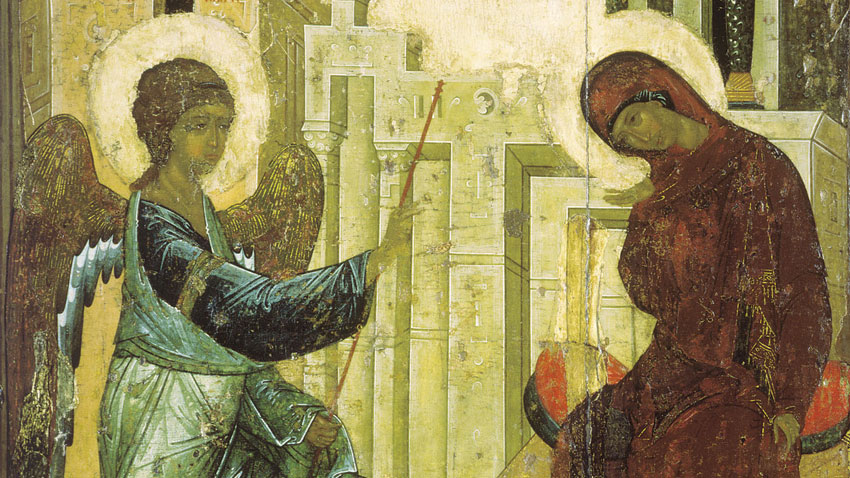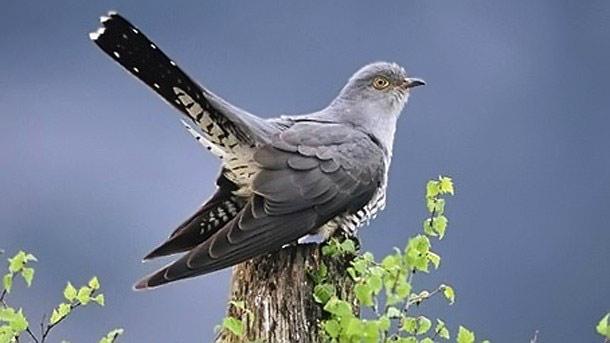In traditional beliefs on 25 March, Blagovets (Annunciation) one had to keep some cash, and a fishbone. And anyone would be warned not to leave their homes hungry. Traditional communities were expected to have a busy agenda of rituals on this day of magic. Above all, however, one had to keep a cheerful mood, because the mood on 25 March used to predict the rest of the year.
 Blagovets is celebrated on 25 March when the Orthodox Church marks Annunciation. Still, the two feasts have quite different meanings. According to the biblical parable, Archangel Gabriel made an appearance before Virgin Mary to break the news to her that she would give birth to the Son of God. In the Christian tradition the celebration of the Good News began in 4 c. Until the communist regime took over in Bulgaria, 25 March was marked as both Annunciation and Mother's Day. This tradition has been revived in the aftermath of 1989. In the meantime, many Bulgarians continue to celebrate March 8, International Women's Day.
Blagovets is celebrated on 25 March when the Orthodox Church marks Annunciation. Still, the two feasts have quite different meanings. According to the biblical parable, Archangel Gabriel made an appearance before Virgin Mary to break the news to her that she would give birth to the Son of God. In the Christian tradition the celebration of the Good News began in 4 c. Until the communist regime took over in Bulgaria, 25 March was marked as both Annunciation and Mother's Day. This tradition has been revived in the aftermath of 1989. In the meantime, many Bulgarians continue to celebrate March 8, International Women's Day.
The roots of the folklore Blagovets are in the pre-Christian era and pagan feasts. Dated close to the astronomical arrival of spring it unites different practices and rituals aimed to welcome the new beginning.
Annunciation is always during the Great Lent, and fish is allowed to serve on this day. Fish is present in folklore celebrations too. After eating the fish meal, eaters were asked to clean their teeth with fishbone to make sure health and luck would accompany them during the year. Even the poorest members of the community who could not have fish, kept an old bone to honor the magical practice of tooth picking.
 In popular beliefs March 25 was the day when the cuckoo arrived and broke the good news that winter was gone, and the summer was no longer away. The cuckoo brought another message too - that wood-nymphs would come out in the woods. Besides, it was the day ending the hibernation of bears, and serpents came out of their hiding places. As a way to avoid serpent bites in the summer, villagers made a ritual tour of their houses and yards. Most often this was the job of women and kids. They would rattle with tongs, ladles and any metal objects and chant. “Go away serpents and lizards, let Blagovets come!” or „Go away mice, adders and vipers, let sweet wheat come!” In some regions of Bulgaria the locals would protect their houses and yards by lighting tissues. They went around the house shouting: “Eve, when I am down in vale you make sure you are in the field!” Eve was the name they used to address the snake.
In popular beliefs March 25 was the day when the cuckoo arrived and broke the good news that winter was gone, and the summer was no longer away. The cuckoo brought another message too - that wood-nymphs would come out in the woods. Besides, it was the day ending the hibernation of bears, and serpents came out of their hiding places. As a way to avoid serpent bites in the summer, villagers made a ritual tour of their houses and yards. Most often this was the job of women and kids. They would rattle with tongs, ladles and any metal objects and chant. “Go away serpents and lizards, let Blagovets come!” or „Go away mice, adders and vipers, let sweet wheat come!” In some regions of Bulgaria the locals would protect their houses and yards by lighting tissues. They went around the house shouting: “Eve, when I am down in vale you make sure you are in the field!” Eve was the name they used to address the snake.
Cleaning houses and making fires was a must on 25 March. Early in the morning on Blagovets garbage and useless staff was thrown away. A fire was built and people jumped over it to have their feet smoked a bit as a good way to prevent summer serpent bites. There are many tomb-looting legends too, as the belief has it that on this day there is blue flame that goes above big treasures. On the eve of 25 March treasure-hunters went round fields and mounds in the hope of sighting the wonderful sign.
Beekeepers would open their beehives to let bees out so that the new honey comes rich in flavor. In some regions of Bulgaria little girls rolled round loafs down meadows, to make sure work in the fields is pleasant in the summer. And songs that went along with practices and rituals mention the cuckoo, the spring and the wish for goodness and sweetness throughout the year.
English Daniela Konstantinova
Nearly 340 participants from countries on different continents will take the stage at the Summer Theatre in Marno Pole Park in Veliko Tarnovo to present the their folklore traditions. The start is today, 20 July, when the traditional..
Products made of wool inspire the feeling of inner comfort and warmth in the visitors of the Plovdiv Regional Ethnographic Museum. The exhibition "Bulgarian felts - a message from antiquity" presents an ancient craft, which is..
The Hague, a city in the south of the Netherlands, the administrative centre and the place where the Queen lives and works... Hardly anyone associates this city with Bulgarian folklore and traditions. But the fact is that the interest in..

+359 2 9336 661
